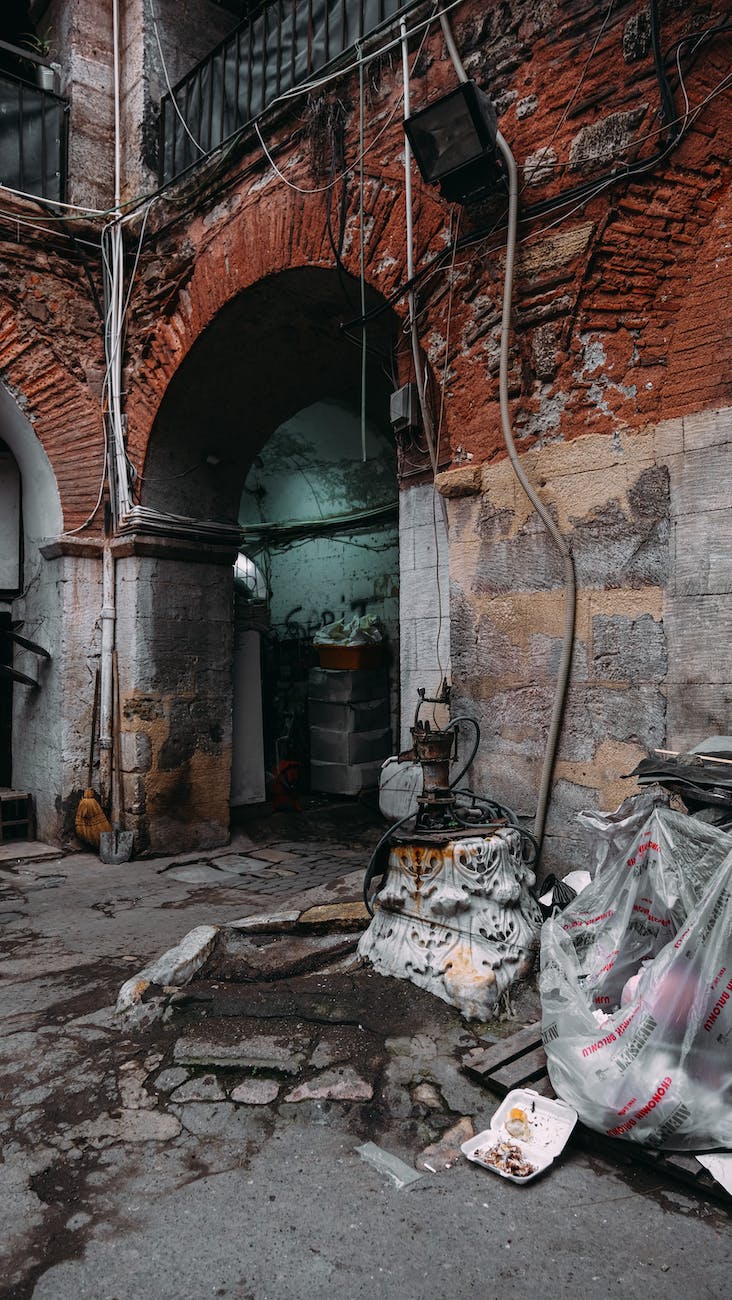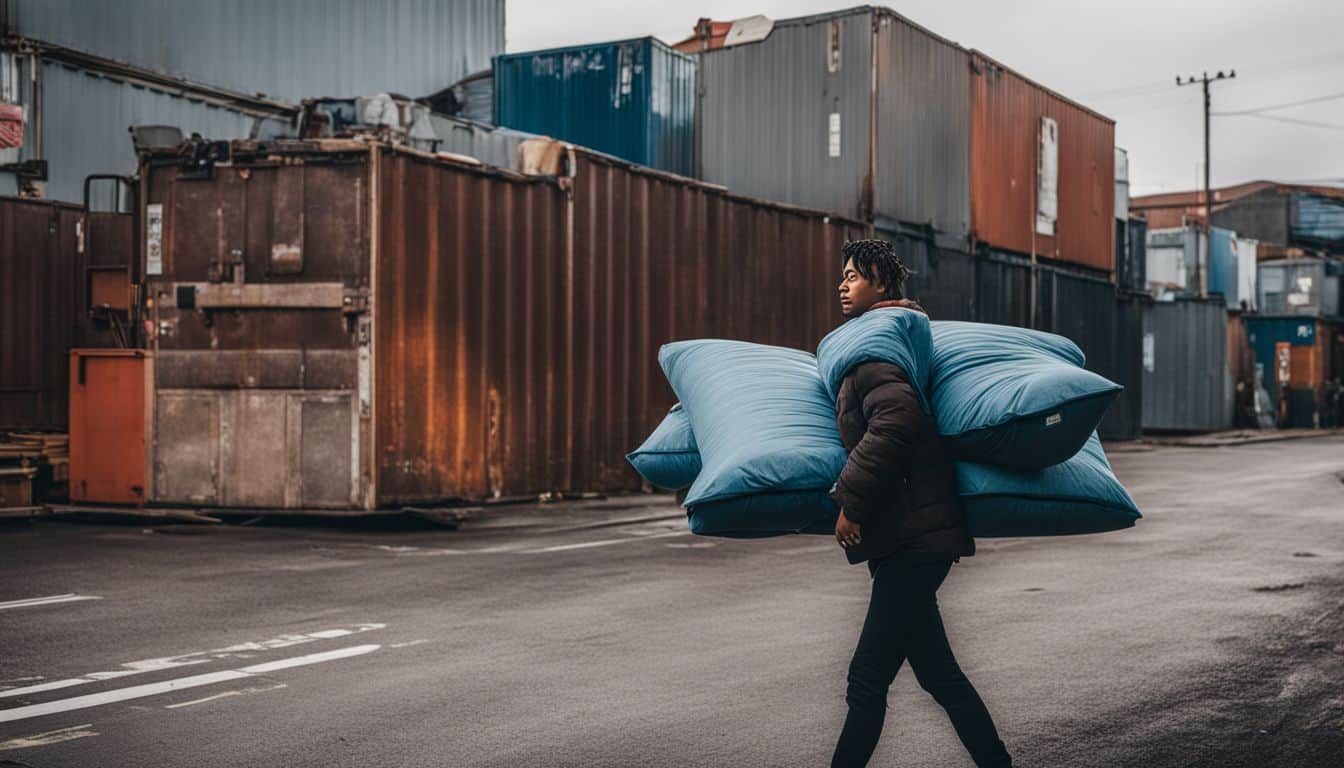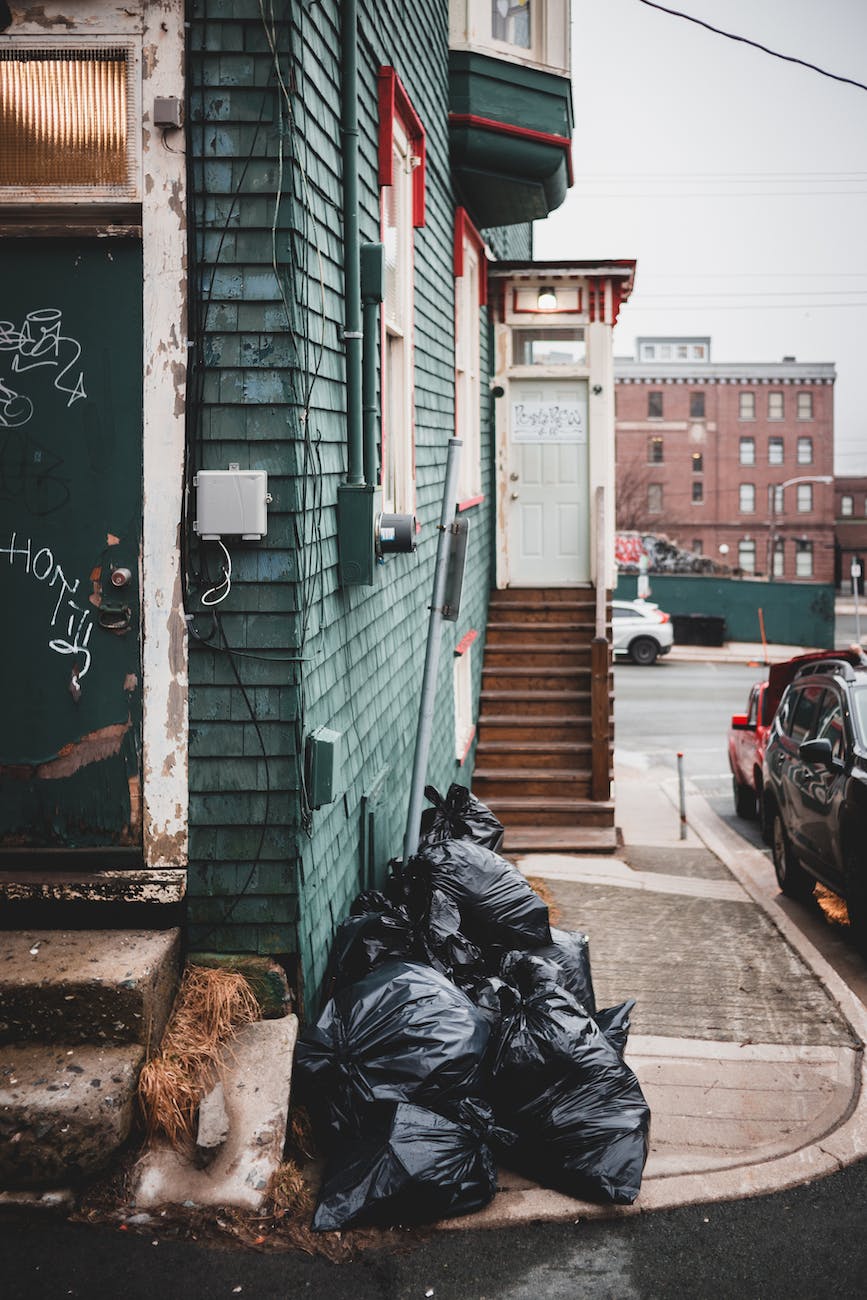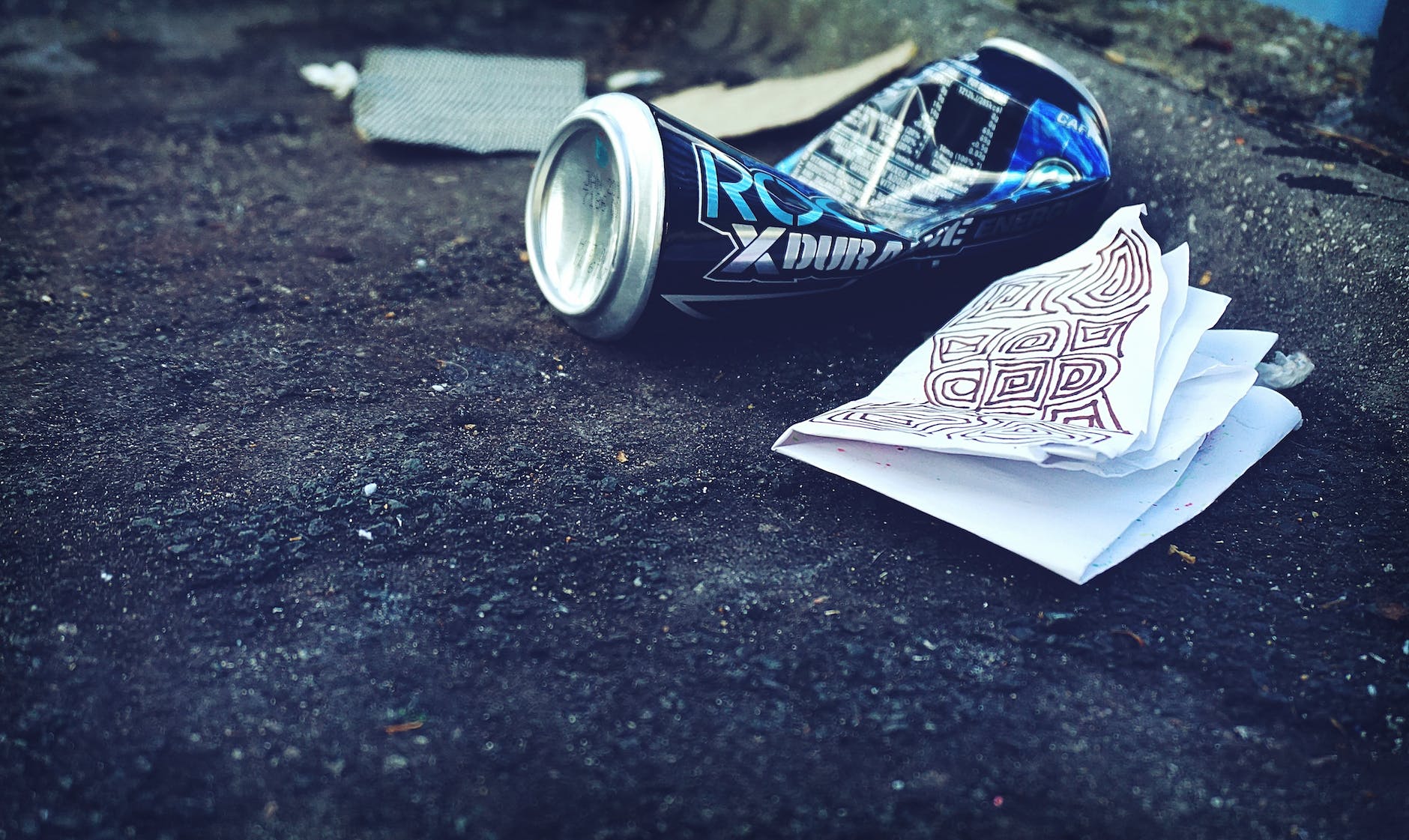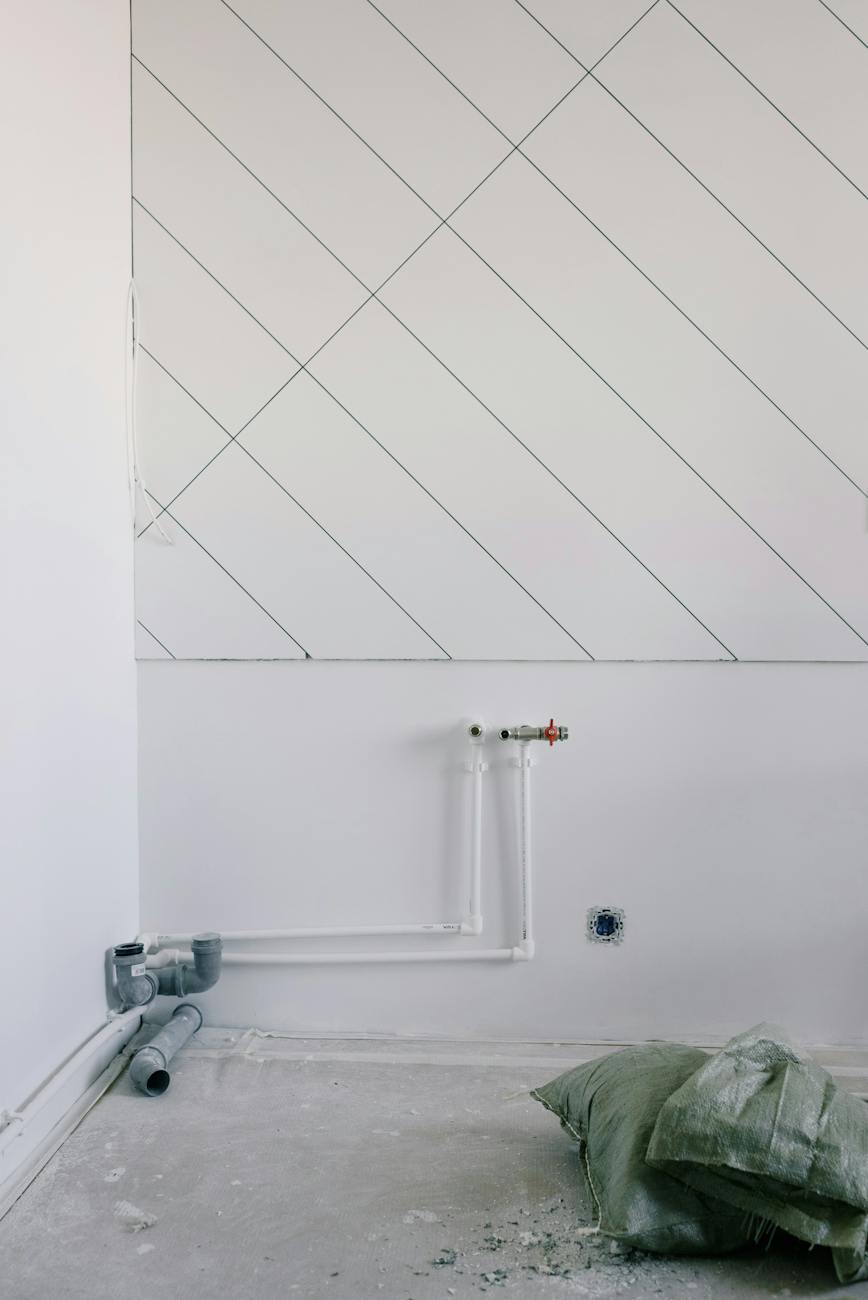Understanding Rubbish Removal in Dublin’s Construction Scene
Efficient waste management is a pivotal aspect of Dublin’s construction industry. With growing concerns about sustainability and proper disposal methods, understanding the intricacies of rubbish removal is essential for any construction project within the city.
The Importance of Efficient Waste Management
Efficient waste management is not merely a regulatory requirement; it is also a responsibility towards the environment and the community. Proper rubbish removal ensures safe and healthy working conditions on construction sites, prevents pollution, and conserves valuable resources through recycling and reuse. Moreover, it can enhance the reputation of construction companies committed to eco-friendly practices.
Efficient waste management also directly impacts project costs and timelines. Streamlined rubbish removal processes can reduce potential delays, avoid fines associated with non-compliance, and improve overall site productivity. For insights on eco-friendly rubbish disposal solutions, refer to eco-friendly rubbish disposal solutions for Dublin businesses.
Types of Waste in Construction Projects
Construction projects generate a diverse range of waste materials. These can broadly be categorized into:
- Inert Waste: Non-biodegradable materials that do not decompose or react when buried, such as bricks, concrete, and stones.
- Hazardous Waste: Materials that pose risks to health or the environment, including asbestos, chemicals, and paints.
- Non-Hazardous Waste: Other forms of waste that do not fit into the inert or hazardous categories, like wood, metal, and packaging.
| Waste Type | Examples |
|---|---|
| Inert Waste | Bricks, Concrete, Tiles |
| Hazardous Waste | Asbestos, Paints, Solvents |
| Non-Hazardous Waste | Wood, Metal, Plastic |
Each type of waste demands specific handling and disposal methods to minimize environmental impact and adhere to legal requirements. For detailed information on waste types and disposal methods, readers might explore construction site clean-up: rubbish removal services in Dublin.
The ultimate guide to rubbish removal for Dublin construction projects aims to provide comprehensive insights into managing construction waste effectively. By understanding the importance of waste management and familiarizing oneself with the types of waste generated on-site, stakeholders in the construction industry can make informed decisions that benefit their projects, the community, and the environment.
Legal and Environmental Considerations
When managing waste from construction sites, it’s crucial to consider both legal mandates and the environmental ramifications. This section delves into the regulations that govern rubbish removal in Dublin and the impact that construction debris has on the environment.
Regulations Governing Rubbish Removal in Dublin
Dublin has specific legislation outlining the proper disposal of waste from construction sites to ensure public safety and environmental protection. Contractors and businesses must adhere to these regulations to avoid legal repercussions.
Key regulations include:
- The Waste Management Acts 1996 to 2011
- The European Union (Waste Directive) Regulations 2011
- Local authority by-laws for waste disposal
These laws mandate that all waste is handled, transported, and disposed of by licensed and authorized waste management services. Documentation such as waste transfer notes must be maintained as evidence of compliant disposal practices.
Moreover, Dublin construction entities must ensure their waste removal partners are fully certified. Choosing a reputable rubbish removal service is not just a matter of compliance but also speaks to a company’s commitment to sustainability. More on selecting the right partner can be found in our guide on property management efficiency: partnering with Dublin rubbish removal experts.
Environmental Impact of Construction Waste
The environmental implications of improperly managed construction waste are significant. Construction materials contribute to landfill mass, and certain components can release harmful substances into the soil and groundwater.
| Waste Type | Environmental Impact |
|---|---|
| Concrete | Habitat disruption when not recycled |
| Metals | Resource depletion and energy-intensive production |
| Plastics | Long-term degradation and toxicity |
To reduce these impacts, construction projects should prioritize waste hierarchy principles: reduce, reuse, recycle. Implementing on-site segregation can enhance the recyclability of materials, as detailed in maximizing recycling opportunities with Dublin’s rubbish removal services.
Construction projects also contribute to CO2 emissions through the transportation of waste. By choosing local eco-friendly rubbish disposal solutions for Dublin businesses, companies can minimize their carbon footprint while supporting circular economy practices.
Addressing these legal and environmental considerations is essential for maintaining a responsible and sustainable construction industry in Dublin. By complying with regulations and adopting environmentally conscious waste management practices, construction companies can play a critical role in preserving Dublin’s natural resources for future generations.
Planning for Waste Removal
Efficient planning is the cornerstone of effective waste management, particularly in construction projects where the volume and variety of waste can be substantial. Proper planning ensures that rubbish removal is conducted in a timely, cost-effective, and environmentally responsible manner.
Assessing Your Waste Removal Needs
Before initiating any construction project, it is crucial to evaluate the types and amounts of waste that will be generated. This assessment allows for the identification of the most suitable waste removal methods and the development of a waste management plan tailored to the project’s specific requirements. Factors to consider include the size of the construction project, the types of materials that will be used, and the potential for waste reuse or recycling.
| Waste Type | Estimated Volume | Disposal Method |
|---|---|---|
| Concrete | 5 tons | Recycling |
| Metal | 2 tons | Scrap Dealer |
| Timber | 3 tons | Reuse or Recycle |
| General Rubbish | 4 tons | Landfill or Waste-to-Energy |
An essential part of this assessment is the identification of waste streams that can be diverted from landfills. For example, materials like concrete and metal can often be recycled, while timber may be reusable in certain circumstances. For more information on eco-friendly waste disposal, readers can explore eco-friendly rubbish disposal solutions for Dublin businesses.
Scheduling for Regular Rubbish Removal
Once the waste removal needs are understood, the next step is to establish a schedule for regular rubbish removal. This schedule should align with the phases of the construction project to ensure that waste does not accumulate on-site, which can hinder operations and pose safety risks.
A regular removal schedule also helps maintain the cleanliness of the site and can improve the overall efficiency of the construction process. It’s important to coordinate with a rubbish removal partner who can reliably adhere to the established schedule. Consideration should be given to the frequency of removal, the capacity needed for each removal, and the timing that best fits the flow of construction work.
| Project Phase | Rubbish Removal Frequency | Notes |
|---|---|---|
| Demolition | Daily | High volume of debris |
| Construction | Weekly | Moderate volume of mixed waste |
| Finishing | Bi-weekly | Lower volume of general rubbish |
For assistance in streamlining rubbish removal in complex projects, construction managers may consult construction site clean-up: rubbish removal services in Dublin.
In summary, assessing waste removal needs and scheduling regular rubbish removal are essential steps in managing construction waste efficiently. These practices not only contribute to the smooth operation of the construction site but also support compliance with waste management regulations and environmental sustainability goals.
Rubbish Removal Strategies for Construction Sites
Effective rubbish removal on construction sites is a key component of efficient project management in Dublin. It entails the implementation of systematic approaches for handling, segregating, and disposing of waste materials. Below are strategies for segregation and recycling of materials, as well as on-site waste management techniques.
Segregation and Recycling of Materials
The segregation of waste materials is a fundamental step in the rubbish removal process. It involves the classification of waste into distinct categories to facilitate recycling and reduce the volume of waste sent to landfills.
| Waste Material | Segregation Category |
|---|---|
| Concrete | Recyclable |
| Metals | Recyclable |
| Timber | Reusable/Recyclable |
| Packaging | Recyclable |
| Hazardous | Special Handling |
By separating materials such as plastics, metals, glass, and wood, construction sites can significantly improve their environmental impact and potentially reduce costs associated with waste disposal. Recycling not only conserves resources but also aligns with Dublin’s commitment to sustainable practices as outlined in articles like sustainable practices: eco-friendly rubbish removal in Dublin.
On-Site Waste Management Techniques
On-site waste management is another pivotal strategy that encompasses various techniques aimed at minimizing the generation of waste and managing it effectively. Key techniques include:
- Designating waste collection zones: Allocating specific areas on the construction site for waste collection helps in maintaining order and promotes efficient removal.
- Utilizing mini recycling centers: Small-scale recycling stations can be set up to handle immediate waste sorting and processing.
- Implementing just-in-time ordering: This reduces material surplus and storage needs, subsequently minimizing waste.
- Training staff on waste reduction: Educating workers on the importance of waste management leads to better adherence to disposal protocols.
These on-site techniques contribute to the overall efficiency of rubbish removal operations. For more detailed insights on managing construction waste, readers can refer to construction site clean-up: rubbish removal services in Dublin.
Adopting these strategies ensures that construction projects in Dublin handle waste responsibly, comply with regulations, and contribute to the sustainability goals of the city. By integrating both segregation and on-site management techniques, construction sites can remain clean, safe, and productive while also prioritizing eco-friendly practices.
Options for Rubbish Removal in Dublin
For those involved in Dublin’s construction scene, efficient disposal of waste materials is a top priority. Numerous options are available to ensure that waste is handled responsibly, each offering different benefits depending on the scope and size of the project. Here, we explore three common rubbish removal services in Dublin: skip hire, grab lorry services, and man-and-van waste removal services.
Skip Hire Services
Skip hire is one of the most traditional methods of waste disposal on construction sites. It involves hiring a large container that is delivered to the site and then collected once filled with waste. This option is ideal for projects that generate a large volume of waste over a period of time.
| Skip Size | Approximate Capacity (Cubic Yards) | Suitable for |
|---|---|---|
| Mini Skip | 2-3 | Small projects, home renovations |
| Midi Skip | 4-5 | Medium-sized projects, office clear-outs |
| Builders Skip | 6-8 | Large construction projects |
Skip hire services in Dublin cater to a range of project sizes, offering skips that can hold anywhere from a few cubic yards to several. It is important to estimate the amount of waste that will be generated to choose the correct skip size. For more information on eco-friendly waste disposal options, visit eco-friendly rubbish disposal solutions for Dublin businesses.
Grab Lorry Services
Grab lorry services provide a more flexible approach to waste removal, especially for sites with limited access or where waste is generated in large quantities that need to be cleared quickly. A grab lorry is equipped with a hydraulic arm that can reach over fences and other obstacles to collect waste without the need for additional loading equipment.
| Lorry Capacity | Approximate Load (Tonnes) |
|---|---|
| Small Grab Lorry | 4-8 |
| Large Grab Lorry | 16-20 |
These lorries are capable of removing various types of construction waste, including soil, concrete, and mixed debris. For projects that need swift and efficient clearance, such as construction site clean-up, grab lorry services can be an excellent choice.
Man-and-Van Waste Removal Services
Man-and-van services offer a more personalized rubbish removal solution. They are typically used for smaller projects or when waste needs to be removed on an ad-hoc basis. A team arrives with a van to collect and dispose of waste as required, making this an ideal service for those who need flexibility.
These services are usually charged based on the volume of waste removed and the time taken to clear it. They are perfect for those who require waste to be cleared at different stages of a project, or for sites that produce less waste. For more on streamlining waste management, review streamlining rubbish removal in Dublin: a guide for homeowners.
Each rubbish removal option has its own set of advantages and can be tailored to meet the specific needs of a construction project in Dublin. By selecting the appropriate service, construction professionals can manage waste efficiently, ensuring that projects remain clean, safe, and compliant with local regulations.
Best Practices for Construction Waste Management
Effective waste management in the construction sector is not only about disposing of materials; it also involves adopting practices that can reduce waste generation and enhance sustainability. Here are some best practices for managing waste on construction sites in Dublin.
Reducing Waste at the Source
The most impactful way to manage waste is to reduce its creation at the source. This can be done through:
- Precise planning and estimation to avoid overordering of materials.
- Utilizing advanced software to optimize resource allocation and minimize offcuts.
- Training personnel on efficient material handling and usage techniques.
By taking proactive steps to minimize waste generation, construction projects can see a significant reduction in their environmental footprint and a boost in overall cost savings.
Reusing Materials Whenever Possible
Reusing materials not only contributes to waste reduction but also cuts down on the demand for new resources. Reusable items include:
- Structural elements like beams and girders that can be repurposed.
- Bricks, tiles, and other materials that can be cleaned and reused for different projects.
- Leftover paint and solvents that can be stored properly for future use.
Construction sites should have a system for sorting materials that can be reused, and they should partner with recycling made easy: Dublin’s top rubbish removal services to ensure that these materials find a second life.
Choosing the Right Rubbish Removal Partner
Selecting the right rubbish removal service is critical for efficient waste management. Considerations include:
- A company’s commitment to sustainable practices: eco-friendly rubbish removal in Dublin.
- The range of services offered, from construction site clean-up to tailoring options for different project sizes.
- The provider’s ability to maximize recycling opportunities and navigate the regulations.
A reliable partner should also offer transparent pricing models that can be integrated into the project’s budget effectively. Collaborating with a professional service ensures adherence to all legal and environmental considerations while providing peace of mind that waste disposal is being handled responsibly.
By implementing these best practices, construction projects in Dublin can significantly improve their waste management processes. These measures not only benefit the environment but also contribute to a more efficient and cost-effective project execution. Remember to stay informed about the latest trends and services, like those offered by Dublin’s premier rubbish removal services, to ensure that your waste management approach is always at the cutting edge.
Safety Measures in Rubbish Removal
Implementing robust safety measures is a critical component of waste management in the construction industry, especially in bustling urban environments like Dublin. Ensuring that waste is handled, transported, and disposed of safely not only protects workers but also the general public and the environment.
Ensuring Safety During Waste Handling
Safety during waste handling involves a combination of proper equipment, training, and adherence to protocols. Workers should be equipped with personal protective equipment (PPE) such as gloves, safety glasses, and sturdy boots to protect against potential hazards.
Waste should be stored securely and in an organized manner to prevent accidents. Hazardous waste requires special handling and should be clearly labeled and stored separately from other types of waste. To understand how to properly dispose of hazardous materials and ensure eco-friendly practices, refer to sustainable practices: eco-friendly rubbish removal in Dublin.
To minimize risks, all personnel must be trained in the correct procedures for handling different types of waste. Regular safety briefings can serve to reinforce the importance of safety and ensure that all team members are up-to-date on the latest guidelines.
| Personal Protective Equipment (PPE) | Purpose |
|---|---|
| Gloves | Protect hands from sharp objects and contamination |
| Safety Glasses | Shield eyes from debris |
| Sturdy Boots | Prevent foot injuries and slips |
Equipment and Personnel Safety Standards
The equipment used in rubbish removal must comply with safety standards and be maintained regularly to prevent malfunctions that could lead to accidents. Vehicles such as skip lorries and grab trucks should be inspected frequently to ensure they are in good working order.
Personnel operating the equipment must be certified and trained on each specific type of machinery. This includes understanding the operational limits of the equipment, such as weight capacities and proper loading techniques.
Safety standards also require that construction sites have clear and accessible emergency exits, and that all workers are familiar with emergency procedures. For insights into professional clean-up services that adhere to these standards, one can explore construction site clean-up: rubbish removal services in Dublin.
By prioritizing safety measures in rubbish removal, Dublin’s construction projects can minimize the risk of accidents and ensure a safe environment for everyone involved. Proper training, equipment maintenance, and adherence to safety protocols play a pivotal role in achieving this goal.
Costs and Budgeting for Rubbish Removal
Efficient financial planning is vital for successful rubbish removal in Dublin construction projects. This section provides insights into the costs associated with rubbish removal and how to budget effectively to meet your project’s waste management needs.
Estimating Rubbish Removal Costs
The cost of rubbish removal for construction projects in Dublin can vary widely based on several factors. These include the volume and type of waste, the distance to the disposal or recycling facility, and the frequency of removal required. To help with estimating the costs, here’s a table that outlines potential expenses associated with different waste types:
| Waste Type | Estimated Cost Range |
|---|---|
| General Mixed Waste | €200 – €400 per tonne |
| Soil and Stones | €150 – €300 per tonne |
| Metal Scraps | €100 – €250 per tonne |
It’s also important to factor in rental costs for skips or other rubbish removal equipment, which will depend on the size and duration of hire. For more detailed information on the costs associated with specific rubbish removal services, refer to commercial waste solutions: Dublin’s premier rubbish removal services.
Budgeting for Your Project’s Needs
Creating a budget for rubbish removal should be an integral part of your project’s overall financial plan. Start by assessing the scope of your project to determine the potential volume of waste generated. Next, consider the following steps to create a comprehensive budget:
-
Identify the Types of Waste: Different materials may require separate disposal methods and costs. Segregate waste into categories like recyclables, hazardous materials, and general waste.
-
Choose the Right Disposal Method: Decide whether skip hire, grab lorry, or man-and-van services are best suited for your needs. Each has its own pricing structure.
-
Frequency of Removal: Determine how often waste will need to be removed. Regular removal may qualify for discounted rates with some service providers.
-
Incorporate Recycling: Recycling can reduce overall costs. Investigate recycling made easy: Dublin’s top rubbish removal services for options that can help your project save money and be more sustainable.
-
Include Contingencies: Set aside a portion of the budget for unexpected waste-related expenses, which can include hazardous material handling or overtime charges for removal crews.
By carefully estimating and budgeting for rubbish removal costs, construction projects in Dublin can operate more efficiently, keeping projects on schedule and within financial constraints. Always consider partnering with a reputable waste management service that can provide tailored solutions, as discussed in tailored rubbish removal: Dublin’s answer to waste disposal challenges, to ensure your waste is handled responsibly and cost-effectively.

